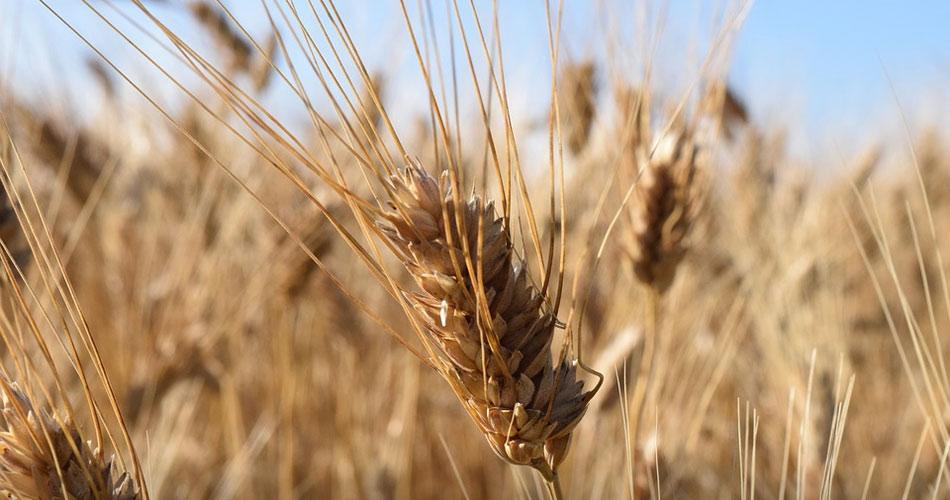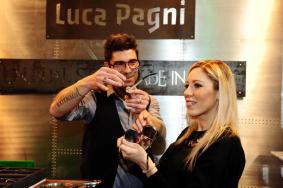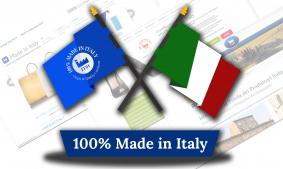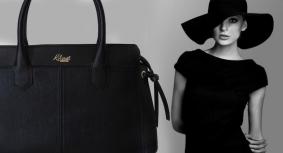Chatting with a Ramacca farmer who produces durum wheat on the current (very bad) year, we ensure that the governments of the countries of North Africa import the Sicilian durum wheat. But before making it to arrive in their own countries they send inspectors to the Sicilian ports to check the wholesomeness of the wheat. We, in Sicily, we bring all the ships of the world and we eat the wheat without any prior control!
In North Africa they eat Sicilian durum wheat and the Pugliese one. Not only. Before they get there they come to check with them here, sending their inspectors to Sicily. In the ports of our island comes instead the hard wheat from who knows where and no one controls it: and they make it eat!
We had a glimpse of this in October of last year, when we wrote an article in which we said that in North Africa, to prepare cus cus they do not want glyph wheat and, consequently, they only eat durum wheat. Sicilian and Pugliese that ripens in the sun, naturally, without glyphosate.
Now what we imagined is told to us, by thread and by sign, by Carmelo Allegra, a producer of durum wheat in Ramacca, in the province of Catania. We exchanged with him a chat about how the durum wheat year is going in Sicily.
So we learned that it's a bad year, the one that started these days. Low production due to drought (Professor Silvano Riggio is wrong when he says that Sicily has now entered the Saharan bubble?) And low prices. In economics it would be a contradiction: because as the supply decreases, you know, the price should rise upwards. This is not so in our Island and, in general, in the South, where the supply of durum wheat is never lacking, since we are literally submerged by ships loaded with durum wheat.
Not only. Even if, at certain times of the year, the supply of foreign wheat is reduced and the demand for durum wheat in Southern Italy is growing, the price remains the same low because of the 'ammuini' on the volume of trade.
In short, farmers who produce durum wheat in the South and, in particular, in Sicily, have many problems. Starting with the most serious of all: the almost total absence of politics.
For the producers of durum wheat of our island the Department of Agriculture does not exist and, when it materializes, produces damage: just think of the contributions for the so-called 'biological' (read organic crops), with the payments of the 2015 deadline still blocked !
But let's go to this year's durum wheat. In Sicily, the wheat season is long and varies, temporally, depending on the areas (and also the type of wheat that is sown). It starts at the end of May-early June in the southern areas, from Gela to some areas of the Catanese area. It continues throughout June and July. In mountain areas, durum wheat is harvested in August and - for example in Madonie - even in early September.
But this year - so they tell us - pulls bad air: as already mentioned, low production a bit 'everywhere.
"This year - Allegra tells us - things are not good at all. Drought has decimated productions. In some areas it does not exceed 10 quintals of durum wheat per hectare. Low production and low prices: from 17 to 19 euros per quintal. Believe us: we do not even take the costs at these prices ".
Allegra cultivates durum wheat in organic, but has not chosen ancient varieties.
"For charity - he tells us - great respect for the old varieties of durum wheat -. The problem is that when we produce large quantities, we risk not knowing who to sell them ".
Returning to the low prices of Sicilian durum wheat, Allegra has his own theory:
"It is wrong to undertake a war against ships that import durum wheat in Sicily and southern Italy - he tells us -. This would damage us because Sicilian durum wheat is exported to North Africa. The battle, if anything, should be done on the controls. And on this front we are weak ".
At this point Allegra tells us a story that leaves us stunned.
"You have no idea - he tells us - that the attention of the rulers of the countries of North Africa in controlling the batches of Sicilian durum wheat that they buy from us. They do not control ships when they arrive in their ports, but come here to Sicily to check the product before departure. In short, when they buy a Sicilian durum wheat game they send their inspectors here to view the product. They control the ships that transport the grain and also the places ".
We have already told, in October of last year, that in North Africa, cus cus is prepared exclusively with Sicilian or Apulian durum wheat. But we did not imagine that they took so much care in controlling the wheat that comes to their tables in the form of cus cus.
On balance, as the President of the Region, Nello Musumeci, and the Councilor for Agriculture, Edy Bandiera, who have announced checks on all foodstuffs arriving in Sicily, have checked and blocked a ship and then, as used say in our part, cu si vitti si vitti ...
"What happens in Sicily is wrong - short cut Allegra -: the ships arrive that no Sicilian inspector has checked in the places of departure, as the rulers of the countries of North Africa claim, and these ships unload the wheat that nobody controls!".
"Only a few months ago, the current regional councilor has put under control a ship loaded with durum wheat from Kazakhstan - adds our farmer who tells a story that we have followed carefully -. Checks were made on the grain, which was contaminated, and the ship was sent back. Then we saw nothing more ".
Allegra also recalls the case of a ship loaded with foreign wheat arrived in Sicily with problems related to the presence of a particular pesticide in powder form. "But even then - he recalls - they turned to the administrative courts who said that the problems could be overcome by venting the grain ...".
We learn, therefore, that the rulers of the countries of North Africa, as regards the protection of the health of their citizens, are much more efficient and much more determined than our rulers, with reference, for example, to Sicily and Puglia.
And we also learn a paradox: we Sicilians eat the durum wheat that arrives with the ships, landed without any control: wheat that could contain contaminants, starting with glyphosate; while in North Africa they eat our durum wheat.
Is not there something that does not come back?
"There are other problems related to public administration - concludes our producer of durum wheat -. I am the owner of one of the 4 thousand organic farms in Sicily, victim of the blocking of funds related to the 2015 announcement. An absurd story ".
But the former regional councilor for Agriculture, Antonello Cracolici, did not say that the matter had been resolved? "But that resolved - Allegra tells us -. If anything, it got worse. The ward of the Region's bureaucrats combined it. And the consequences we are paying us farmers. I do not want to believe what is said around: but around it is said that, as things have been put, 'this money we will not take them anymore. Do you have any idea of the damage they have produced to us farmers? ".
Of the chat with Carmelo Allegra there remains the doubt about ancient Sicilian grains: possible that they have no market? But if - as it came out from the analysis of DNA - there are those who say to produce pasta with these ancient grains, while using them in small part and, therefore, not telling the truth to consumers (HOW CAN YOU READ HERE)? In short, the demand for these ancient Sicilian grains, from the market, should not be missing.
Let's try to get some 'light' from Giuseppe Li Rosi, protagonist of 'Simenza', a cultural association of farmers and farmers very active in our island. We are talking about an important reality, which brings together 78 companies: agricultural, livestock and processing products of the earth. And then you're pasta factories, six bakeries and eleven mills. Approximately 5 thousand hectares are affected by this experience. Land scattered throughout our island, "from Pozzallo to Dattilo", recalls Li Rosi.
Simenza focuses on ancient Sicilian grains. "But it is difficult to operate alone in this sector - says Li Rosi -. Our experience teaches that, with ancient grains, we must work in groups. With production contracts, we know who we sell our products to first. And we - once I have talked about it with you - we sell our wheat at 90 euros per quintal "







